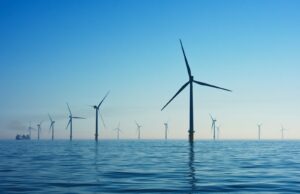A new report has pointed to the benefits of green investment in encouraging economic growth in poorer parts of the UK.
According to a study published by the Resolution Foundation and London School of Economics, the mission to decarbonise the British economy can be aligned with efforts to increase productivity, wealth and job opportunities in struggling parts of the country.
The Growing Clean report points to green investment as a key factor in so-called ‘levelling up’ regional inequalities. Focusing on patent data, the investigation shows that the highest share of green patents are from organisations and individuals based in lower productivity areas, for example Durham and the Tees Valley, Nottinghamshire and Derbyshire.
Funded by the Nuffield Foundation, the study suggests areas with greater economic challenges tend to have more specialisation in producing clean goods or offering green services due to higher concentrations of green businesses. It also pointed to the UK lagging behind so-called ‘green tech superpowers’, 14th in the number of patents for clean innovations. Nevertheless, it has a significant competitive advantage when it comes to technologies like tidal, offshore wind, carbon capture and storage. Green finance is also a booming sector of international repute.
As a result, Growing Clean points to the urgent need to focus on encouraging growth in the aforementioned technologies, much of which has huge potential located in regions such as the East Midlands and north-east England. The Port of Tyne, for example, is already home to more than 5,000 energy related businesses, many of which are green, while the Port of Blyth is already a global leader in offshore energy manufacturing and support.
Earlier this month, the UK Government announced it would be committing £160m to expanding the country’s offshore wind power infrastructure.
Image credit: Nicholas Doherty
















